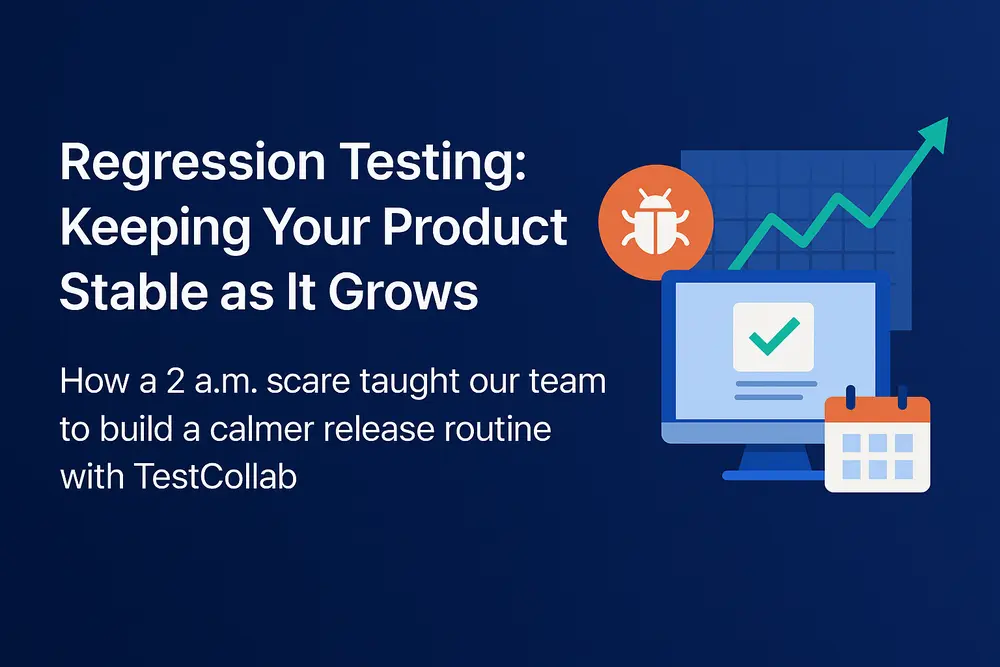Smart contracts play a critical role in decentralized finance or DeFi and the security of these contracts is of utmost importance. The total value locked (TVL) in DeFi (Decentralized Finance) platforms, which heavily rely on smart contracts, has surpassed $40 billion as of 2021, highlighting the significant value at stake. A security breach in a smart contract can result in the loss of funds for users, damage to the platform's reputation, and a loss of trust in the broader DeFi ecosystem. Thus, ensuring the security of smart contracts is crucial to the success and sustainability of such projects/protocols. In this article, we explore some challenges DeFi teams face and how Test Collab can potentially help early adopters of this ecosystem.
Challenges faced by DeFi teams
Since these development teams are usually scattered across the globe which poses some specific issues related to testing, deployment, and security of these protocols (smart contracts):
Testing: Collaborating on testing can be difficult, as each team member may have different ideas about what should be tested and how. Teams may also have trouble coordinating testing across multiple development environments and time zones.
Deployment: Ensuring that a smart contract is deployed correctly and securely can be challenging when multiple developers are involved. Teams may need help to coordinate the deployment process and ensure that all necessary checks are performed before and after deployment.
Security: Conducting a thorough security review of a smart contract is critical, but it can be challenging for teams to coordinate and integrate the results of different security analyses. Teams may also have trouble agreeing on the appropriate security standards and best practices when developing and deploying smart contracts.
Regulations: DeFi teams also need to ensure that they comply with the jurisdictional regulation of their users which might include licensing, Anti-money laundering (AML) and know-your-customer (KYC) regulations, GDPR, and taxation issues.
Risk management for smart contract developers
Smart contract development presents unique risks due to the immutability and automated execution of the code. As a result, it is crucial for smart contract developers to properly manage these risks through various mitigation strategies. This includes conducting thorough security audits, writing robust code that follows industry standards, testing the contract extensively in various scenarios, and having contingency plans for any unexpected errors.
Additionally, smart contract developers should stay informed about any vulnerabilities or updates in the blockchain ecosystem and implement them promptly. By following these best practices, smart contract developers can help ensure the security and reliability of their contracts, ultimately building trust with users and stakeholders.
To overcome such challenges, teams should plan in advance for testing the security of their smart contracts. A good plan in place means:
Predefined scenarios
As developers of any smart contract, you need to ensure that you have designed scenarios to cover a range of specific conditions and situations that a contract may encounter. Because such scenarios can be complex, we highly recommend onboarding your whole team.
An example of a predefined scenario that might seem simple but is more complicated is the transfer of funds between two accounts. On the surface, it may seem as straightforward as sending a specified amount from one account to another. However, when testing this scenario, you need to consider a range of potential complications, such as:
- Insufficient balance in the account sending the funds
- The recipient's account not existing or being invalid
- Reaching the gas limit during the transfer
- The contract being paused or self-destructed during the transfer
- Interactions with other contracts that may impact the transfer
These are just a few examples of the many complications that can arise during a simple transfer of funds, highlighting the importance of thoroughly testing smart contracts to ensure their stability and security.
Creating test cases to address such scenarios reduces the risk for a protocol and its users.
Collaborative Test Plans
You can have hundreds, if not thousands of scenarios as your project grows for various operations. As the number of testing scenarios increases, it becomes increasingly important to have a collaborative approach to test planning. With multiple testers working on different aspects of a project, it's essential to ensure everyone is on the same page and working towards the same goal.
Collaborative test plans help ensure that all testers are working together efficiently and that there is clear communication and understanding of what needs to be tested and how. This can reduce the risk of duplicated effort and improve the overall quality of testing. By centralizing test planning and providing a platform for collaboration, teams can ensure that they are thoroughly testing all the scenarios they need to, without wasting time or resources.
Regulation compliance
The regulatory requirements for decentralized finance (DeFi) teams can vary depending on the jurisdiction in which they operate. However, some common regulatory considerations include:
Licensing: DeFi teams may need to obtain licenses to operate in certain jurisdictions, depending on the nature of their business.
Anti-money laundering (AML) and know-your-customer (KYC) regulations: DeFi teams may need to implement AML and KYC policies and procedures to prevent illegal activities such as money laundering and terrorist financing.
Data privacy: DeFi teams must comply with data privacy regulations, such as the EU's General Data Protection Regulation (GDPR), when collecting, storing, and processing customer data.
Securities laws: DeFi teams must ensure that their offerings, such as tokenized assets, comply with securities laws and regulations, including those related to registration, disclosure, and investor protection.
Consumer protection: DeFi teams must ensure that their offerings and practices comply with consumer protection laws, including those related to fairness, transparency, and disclosure.
Taxation: DeFi teams must comply with tax laws and regulations, including those related to income tax, capital gains tax, and value-added tax (VAT).
Note: It is important for teams to seek legal advice and stay up-to-date on relevant regulations to ensure compliance.
By regularly checking such checklists with each release or at regular intervals, you can reduce the risks of regulatory fines or reputation damage, and ensure ongoing compliance with relevant laws and regulations.
How Test Collab helps DeFi teams
Test Collab provides a cutting-edge platform that offers comprehensive and collaborative test plans and checklists for smart contract developers, significantly reducing the risk of potential issues and vulnerabilities. With Test Collab, teams can ensure thorough testing and security reviews of their smart contracts, stay up-to-date on the latest best practices, and comply with relevant regulations. The platform provides an organized and efficient way to manage the testing and security processes, improving collaboration and communication within the team.









